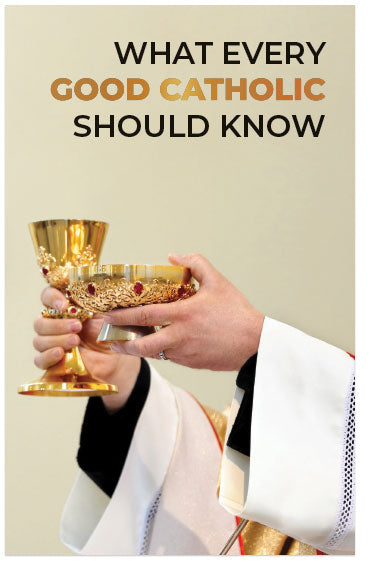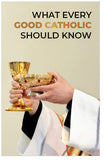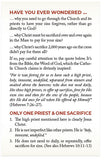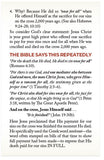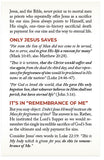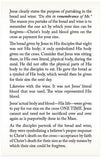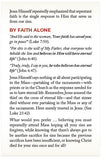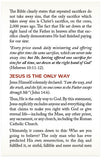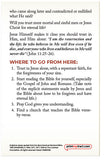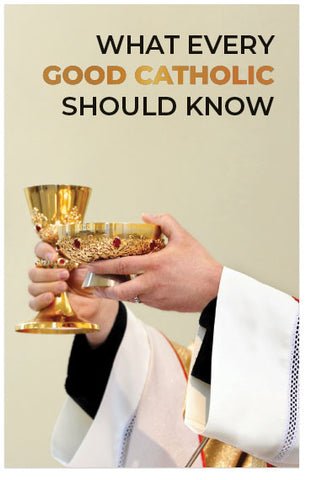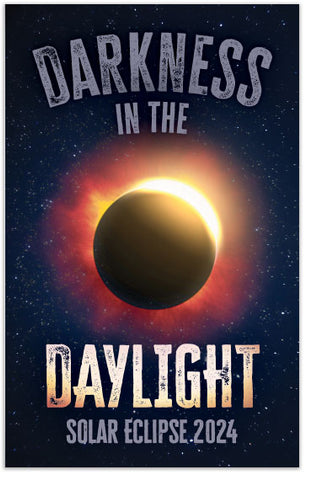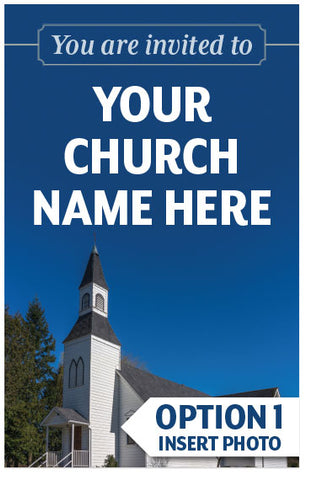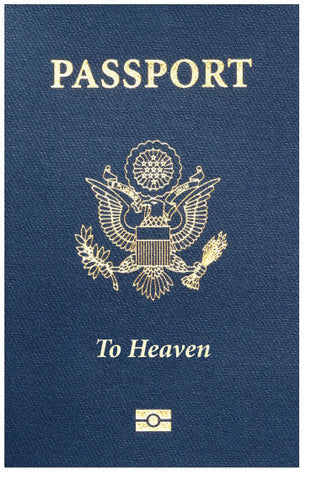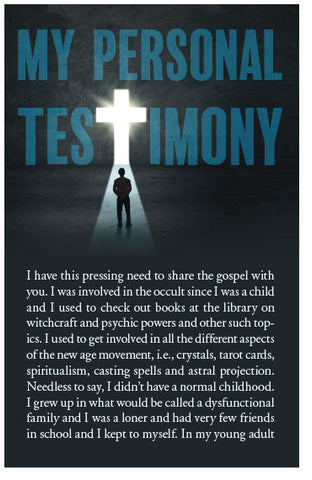What Every Good Catholic Should Know
Special-Order Folded Tract
 NOTE: This item is custom-printed to order (click for more details).
NOTE: This item is custom-printed to order (click for more details).
This tract is from our print-on-demand library, and is not kept in stock. Select the options below, and we will custom-print a batch just for you. Because this item is custom-printed, you can add your custom imprint to the back page at no extra cost.
- Estimated shipping date: Friday, March 27 (Click for more details)
- SKU:
- Discounts: Discount coupons do not apply to this item
- Format: Folded Tract
- Size: 3.5 inches x 5.5 inches
- Pages: 8
- Imprinting: Available with 4 lines of custom text
- Version: NASB
- Returns: Because this item is custom-printed to order, it cannot be returned.
Show all item details
The full text of this tract is shown below in the NASB version. (Do you want to print this tract in a different version than the one listed? Contact us and let us know what you're looking for—we may be able to create the alternate version for you at no charge.)
HAVE YOU Ever wondered …
… why you need to go through the Church and its priests to have your sins forgiven, rather than go directly to God?
… why Christ must be sacrificed over and over again in the Mass to pay for your sins?
… why Christ’s sacrifice 2,000 years ago on the cross didn’t pay for them all?
If so, pay careful attention to the quote below. It’s from the Bible, the Word of God, which the Catholic Church claims is divinely inspired:
“For it was fitting for us to have such a high priest, holy, innocent, undefiled, separated from sinners and exalted above the heavens; who does not need daily, like those high priests, to offer up sacrifices, first for His own sins and then for the sins of the people, because this He did once for all when He offered up Himself” (Hebrews 7:26–27).
Only One Priest & One Sacrifice
1. The high priest mentioned here is clearly Jesus Christ.
2. He is not imperfect like other priests. He is “holy, innocent, undefiled.”
3. He does not need to daily, or repeatedly, offer sacrifices for sins. (See also Hebrews 10:11-13)
4. Why? Because He did so “once for all” when He offered Himself as the sacrifice for our sins on the cross 2,000 years ago. (See also Hebrews 9:24-28; 10:10)
So consider God’s clear statement: Jesus Christ is your great high priest who offered one sacrifice to pay for your sins once and for all when He was crucified and died on the cross 2,000 years ago.
The Bible Says This Repeatedly
“For the death that He died, He died to sin once for all” (Romans 6:10).
“For there is one God, and one mediator also between God and men, the man Christ Jesus, who gave Himself as a ransom for all, the testimony given at the proper time” (1 Timothy 2:5–6).
“For Christ also died for sins once for all, the just for the unjust, so that He might bring us to God” (1 Peter 3:18, written by The Great Apostle Peter).
And on the cross, Jesus Himself said …
“It is finished!” (John 19:30b).
Here Jesus proclaimed that His payment for our sins on the cross was finished the moment He died. He specifically used the Greek word tetelestai—the word often stamped on bills of that time to show full payment had been made—to express that His death paid for our sins IN FULL.
Jesus, and the Bible, never point us to mortal men as priests who repeatedly offer Jesus as a sacrifice for our sins. Jesus always points to Himself, and His single, one-time-in-history sacrificial death as payment for our sins and the way to eternal life.
Only Jesus Saves
“For even the Son of Man did not come to be served, but to serve, and to give His life a ransom for many” (Mark 10:45; also Matthew 20:28).
“Thus it is written, that the Christ would suffer and rise again from the dead the third day, and that repentance for forgiveness of sins would be proclaimed in His name to all the nations” (Luke 24:46-47).
“For God so loved the world, that He gave His only begotten Son, that whoever believes in Him shall not perish, but have eternal life” (John 3:16).
It’s In “Remembrance of Me”
But you may object: Didn’t Jesus Himself institute the Mass for forgiveness of sins? The answer is no. Rather, He instituted the Lord’s Supper so we would remember the single incredible sacrifice of God’s Son as the ultimate and only payment for sins.
Consider Jesus’ own words in Luke 22:19: “This is My body which is given for you; do this in remembrance of Me.”
Jesus clearly states the purpose of partaking in the bread and wine: “Do this in remembrance of Me.” The reason you partake of the bread and wine is to remember the one act by which your sins can be forgiven—Christ’s body and blood given on the cross as payment for your sins.
The bread given by Jesus to His disciples that night was not His body; it only symbolized His body given on the cross. Consider that Jesus was sitting there, in His own literal, physical body, during the meal. He did not offer the physical parts of His body to the disciples to eat. He gave the bread as a symbol of His body, which would then be given for their sins the next day.
Likewise with the wine. It was not Jesus’ literal blood that was used. The wine represented His blood.
Jesus’ actual body and blood—His life—were given to pay for our sins on the cross ONE TIME. Jesus cannot and need not be sacrificed over and over again as is purportedly done in the Mass.
As the disciples partook of the bread and wine, they were symbolizing a believer’s proper response to Christ’s death on the cross—acceptance by faith of Christ’s death for their sins as the only means by which their sins could be forgiven.
Jesus Himself repeatedly emphasized that repentant faith is the single response to Him that saves us from our sins.
By Faith Alone
“And He said to the woman, ‘Your faith has saved you; go in peace’” (Luke 7:50).
“For this is the will of My Father, that everyone who beholds the Son and believes in Him will have eternal life” (John 6:40).
“Truly, truly, I say to you, he who believes has eternal life” (John 6:47).
Jesus Himself says nothing at all about participating in the Mass—partaking of the sacraments—with priests or in the Church as the response needed for us to have eternal life. Remember, Jesus assured the thief on the cross of eternal life—and that sinner died without ever partaking in the Mass or any of the sacraments. Here merely trusted in Jesus. (See Luke 23:42)
What would you prefer … believing you must repeatedly attend Mass hoping all your sins are forgiven, while knowing that there’s always got to be another sacrifice for sins because the previous sacrifices have been insufficient, or knowing Christ died for your sins once and for all?
The Bible clearly states that repeated sacrifices do not take away sins, that the only sacrifice which takes away sins is Christ’s sacrifice, on the cross, 2,000 years ago. The fact that He sat down at the right hand of the Father in heaven after that sacrifice clearly demonstrates He had finished paying for our sins:
“Every priest stands daily ministering and offering time after time the same sacrifices, which can never take away sins; but He, having offered one sacrifice for sins for all time, sat down at the right hand of God” (Hebrews 10:11-12).
Jesus Is the Only Way
Jesus Himself solemnly declared: “I am the way, and the truth, and the life; no one comes to the Father except through Me” (John 14:6).
Thus, He is the only way to God. By this statement, Jesus explicitly excludes anyone and everything else that claims to make you right with God or give eternal life—including the Mass, any other priest, any sacrament, or any church, including the Roman Catholic Church.
Ultimately, it comes down to this: Who are you
going to believe? The only man who has ever predicted His own resurrection, to the day, and fulfilled it, or sinful, fallible and mere mortal men who came along later and contradicted or nullified what He said?
Will you trust mere mortal and sinful men or Jesus Christ for eternal life?
Jesus Himself makes it clear you should trust in Him, and Him alone: “I am the resurrection and the life; he who believes in Me will live even if he dies, and everyone who lives and believes in Me will never die” (John 11:25-26).
Where to Go from Here:
1. Trust in Jesus alone, with a repentant faith, for the forgiveness of your sins.
2. Start reading the Bible for yourself, especially the Gospel of John and Romans. (Take note of the explicit statements made by Jesus and the Bible about how to be forgiven and have eternal life.)
3. Pray God gives you understanding.
4. Find a church that teaches the Bible verse-by-verse.

